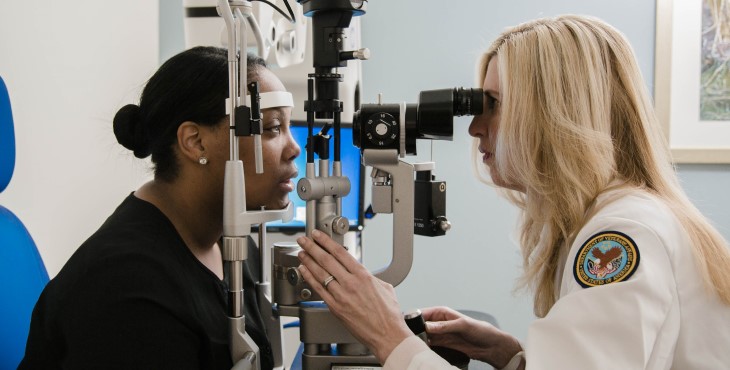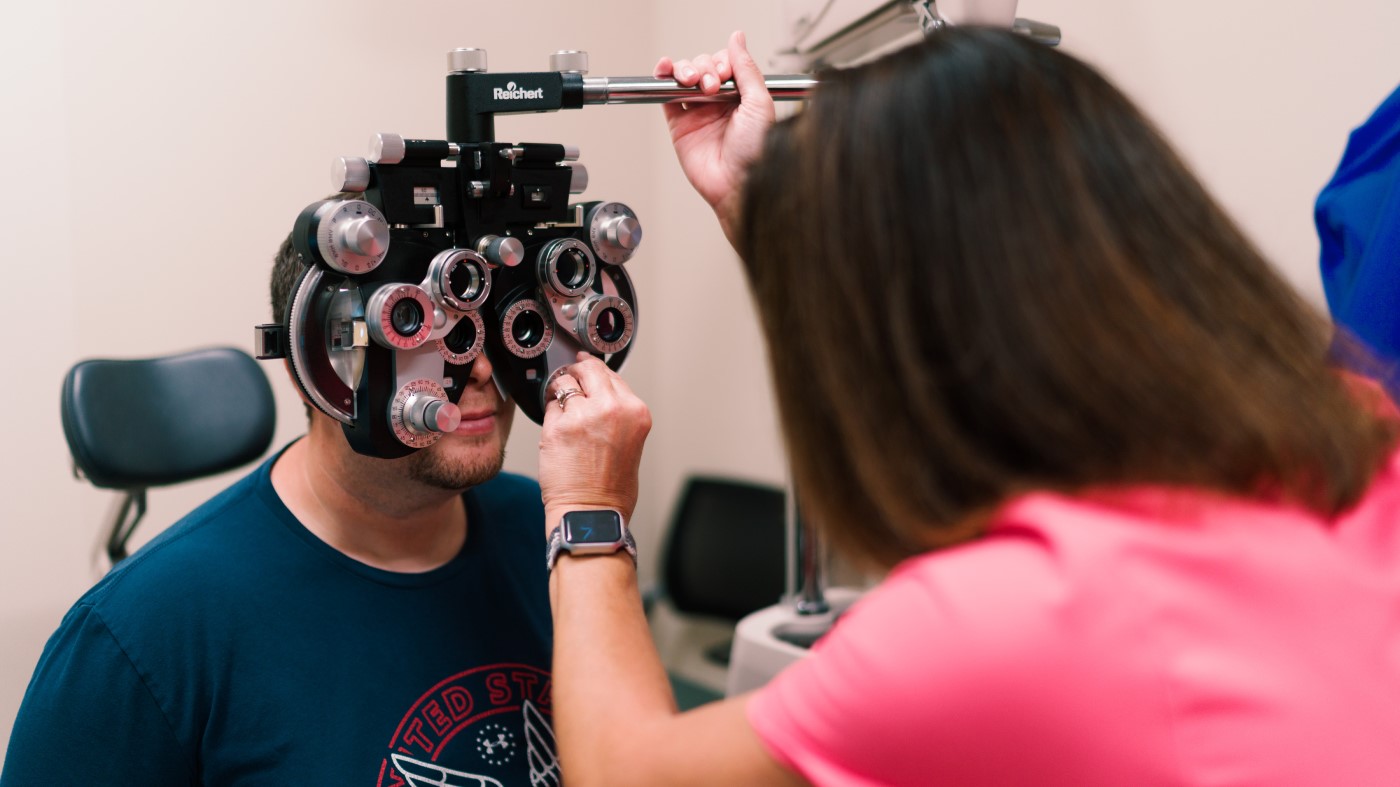Nearly 90% of people in a recent survey ranked sight as their most valuable sense. But for many Veterans, the ability to see the world around them is compromised by age-related issues or combat-inflicted brain injuries.
Ophthalmologists and other eye care professionals at VA have the skills and expertise to make a big difference for these heroes.
In honor of National Eye Exam Month, let’s look at three ways that these invaluable medical professionals change lives at VA.
Administering routine eye exams to catch vision problems early
Identifying patients at high risk of vision loss allows us to pursue more aggressive treatment before damage occurs. For example, glaucoma is a leading cause of blindness in Veterans over age 60 but can be prevented if caught early.
VA has made it easier and faster for Veterans to get eye exams by launching tele-eye screenings. Technicians see Veterans at their primary care office to gather a medical history, take vision measurements, conduct a vision test, measure eye pressure and photograph the retina. Once the visit is complete, the patient’s data and photographs are shared with a remote eye specialist. The specialist can make referrals and prescribe eyeglasses or medication if needed.
Helping Veterans with blindness or low vision navigate their day-to-day-lives
More than a million Veterans are legally blind or live with low vision problems. Many older Veterans suffer from vision loss due to age-related macular degeneration, glaucoma, cataracts, stroke and diabetic retinopathy. As many as 64% of service members who suffered traumatic brain injuries report blurred vision, double vision, sensitivity to light or difficulty reading.
We are committed to helping these Veterans by operating low-vision rehabilitation programs, which we first launched back in 1947. Today, we run 13 residential inpatient Blind Rehabilitation Centers, as well as 22 intermediate and advanced low vision clinics, and 23 advanced ambulatory low vision clinics.
Conducting cutting edge research on vision issues
Throughout our nationwide network, we’re doing research that not only helps Veterans with vision loss but benefits people throughout the world.
After World War II, VA researchers were the first to use obstacle detectors — a predecessor to the laser cane that is still in use today — to help blind Veterans navigate their environment. In the following decades, we also developed reading machines that paved the way for modern assistive technologies.
Today, researchers at our Atlanta-based Center for Visual and Neurocognitive Rehabilitation are focused on visual and related neurological impairment and neurocognitive rehabilitation. It also focuses on retinal and neural repair to prevent or mitigate vision loss caused by injury and disease. Other research projects help train blind people and those with low vision to navigate their way around independently.
Meanwhile, researchers at the VA Center for the Prevention and Treatment of Visual Loss in Iowa City, Iowa, are focused on the early detection of potential blinding disorders, such as retinal disease, glaucoma and traumatic brain injuries. This can be achieved with new diagnostic tools and telemedicine.
Work at VA
Consider an ophthalmology career at VA, where you can help Veterans retain and restore their sight or relearn how to navigate the world.
- SEARCH for an ophthalmology career.
- READ about the top 10 reasons to work at VA.
- EXPLORE the benefits that we offer.
- VISIT us at VAcareers.va.gov.
Topics in this story
More Stories
Whether it’s access to the great outdoors or a calmer pace in your everyday life, you can find it in rural VA communities around the country.
We offer some quick and easy steps to show you how to format a cover letter, and what information to include.
The eye care provided by ophthalmologists can make all the difference to our Veteran patients.






I want to thank you for what you do for vet.s and that you hired someone I know and they love what they do they take it seriously but they have fun doing it I got hugs when y’all hired them and got them back on their feet so kotos to y’all thank you very very much for that